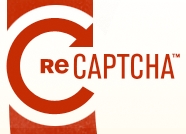CAPTCHAs with a purpose
May 18, 2009 · Chris Peters
It’s estimated that 60 million CAPTCHAs are solved around the world each day. In light of this, Carnegie Mellon has created a program called reCAPTCHA that actually puts all of this superfluous work to use.

As a user of the Web, you’re probably familiar with CAPTCHAs. They’re the little word puzzle with the squiggly letters that you are required to type in when signing up for various services.
It’s estimated that 60 million CAPTCHAs are solved around the world each day. In light of this, Carnegie Mellon has created a program called reCAPTCHA that actually puts all of this superfluous work to use.
When a user fills out a CAPTCHA generated by reCAPTCHA, they are helping academics digitize words in books. The system generates 2 words to solve in the CAPTCHA. Here’s their description on how it works:
The user is then asked to read both words. If they solve the one for which the answer is known, the system assumes their answer is correct for the new one. The system then gives the new image to a number of other people to determine, with higher confidence, whether the original answer was correct.
I’ve been using reCAPTCHA for over a year now on various sites that I’ve built (including the comments section of this blog), and it feels good to know that we’re all doing a little bit to help make more information accessible to everyone. Cheers to Carnegie Mellon for this innovative idea.